Uncategorized
-
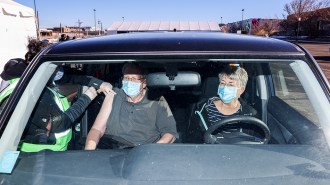 Health & Medicine
Health & MedicineCan a COVID-19 vaccine’s second dose be delayed? It’s complicated
New data indicate that delaying second doses of COVID-19 vaccines may still provide protection, but some scientists aren’t convinced it’s OK.
-
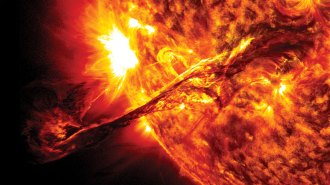 Space
SpaceSolar storms can wreak havoc. We need better space weather forecasts
Solar storms can devastate power grids and other systems on Earth. We need better forecasting
By Ramin Skibba -
 Health & Medicine
Health & MedicineCOVID-19 vaccines may be ready for teens this summer
Vaccinating children against COVID-19 is a crucial step towards reaching herd immunity and returning to pre-pandemic life.
-
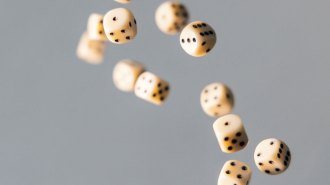 Tech
TechA new laser-based random number generator is the fastest of its kind
A new laser’s chaotic light beam lets the device generate multiple number sequences at once, similar to throwing multiple dice at a time.
-
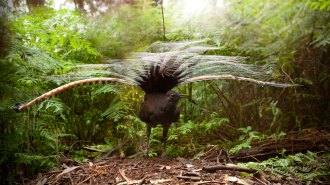 Animals
AnimalsA single male lyrebird can mimic the sound of an entire flock
The Australian birds, already famous for their impressive song-copying skills, appear to be replicating the sounds of a “mobbing flock” of birds.
By Jake Buehler -
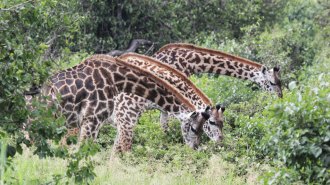 Animals
AnimalsHaving more friends may help female giraffes live longer
A more gregarious life, even while just munching shrubbery, might mean added support and less stress for female giraffes.
By Susan Milius -
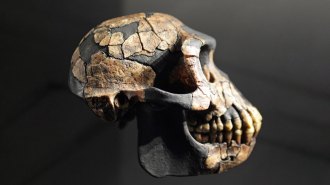 Anthropology
AnthropologyArdi may have been more chimplike than initially thought — or not
A contested study of hand and foot fossils suggests this 4.4-million-year-old hominid was a tree climber and branch swinger.
By Bruce Bower -
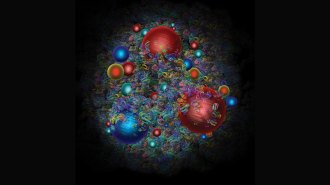 Particle Physics
Particle PhysicsProtons’ antimatter is even more lopsided than we thought
The SeaQuest experiment finds that down antiquarks within the proton are more prevalent than up antiquarks.
-
 Health & Medicine
Health & MedicineRedefining ‘flesh-colored’ bandages makes medicine more inclusive
Peach-colored bandages label dark-skinned patients as outside the norm, says med student Linda Oyesiku. Brown bandages expand who gets to be normal.
By Sujata Gupta -
 Paleontology
PaleontologyClimate change helped some dinosaurs migrate to Greenland
A drop in CO2 levels helped massive plant eaters called sauropodomorphs trek from South America to Greenland 214 million years ago, says a new study.
-
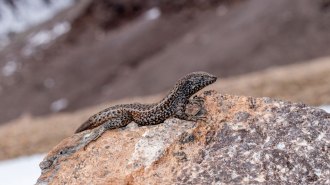 Animals
AnimalsA mountain lizard in Peru broke the reptilian altitude record
Liolaemus tacnae was photographed 5,400 meters above sea level in the Andes, breaking the highest elevation record for a reptile by about 100 meters.
By Jake Buehler -
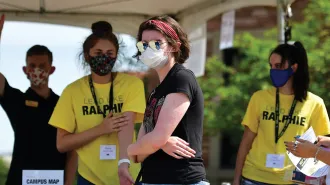 Health & Medicine
Health & MedicineHow 5 universities tried to handle COVID-19 on campus
U.S. colleges opened in the fall with a patchwork of control measures to keep COVID-19 at bay.